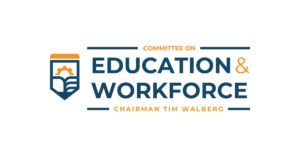Restoring Critical Thinking in the Era of AI

Reclaiming Critical Thinking in the Age of AI
As artificial intelligence (AI) becomes increasingly integrated into our daily lives, the ability to think critically has never been more crucial. With AI systems capable of churn out vast amounts of information, distinguishing between accurate insights and misinformation can be challenging. Here’s a closer look at the importance of critical thinking in today’s AI-driven world.
The Role of AI in Information Accessibility
Rapid Information Distribution: AI technology enables quick access to information. From news articles to academic papers, the sheer volume of available data can overwhelm individuals. While this accessibility has its advantages, it also means users must sift through content critically to find reliable information.
- Algorithmic Influence: AI algorithms shape what information individuals encounter based on previous interactions. This can create echo chambers, where users are exposed mainly to views and information that reinforce their existing beliefs.
Why Critical Thinking Matters
In an era characterized by misinformation and algorithmic bias, nurturing critical thinking skills is essential. Here are a few reasons why:
Misinformation Detection: With clickbait headlines and misleading information rampant online, critical thinking enables individuals to ask the right questions and identify credible sources.
Informed Decision-Making: Whether it’s making personal choices or participating in broader societal discussions, critical thinking allows individuals to assess the implications of the information they consume, guiding them in making sound decisions.
- Challenging Biases: Critical thinking encourages individuals to recognize and question personal biases. By doing this, one can approach information more objectively and make better decisions based on facts rather than emotions.
Enhancing Critical Thinking Skills
Developing strong critical thinking abilities takes practice and dedication. Here are some strategies to improve these skills:
1. Question the Source
Always check the credibility of the source from which you are obtaining information. Consider the following questions:
- Is the information published by a reputable organization?
- What are the author’s credentials?
- Is there evidence to support the claims made?
2. Evaluate the Arguments
Once you ascertain the source’s credibility, analyze the arguments presented:
- Are the arguments logical and well-structured?
- What evidence is provided to support the claims?
- Are there counterarguments that have been addressed?
3. Seek Diverse Perspectives
To foster a well-rounded understanding, seek out multiple viewpoints on a single issue:
- Engage with perspectives that challenge your beliefs.
- Discuss with others to expand your understanding and reasoning.
4. Analyze Your Own Biases
Introspection plays a significant role in critical thinking. Consider:
- What personal biases might influence how you interpret information?
- How can you account for those biases to understand issues more fairly?
Educational Approaches to Critical Thinking
Educational institutions can play a pivotal role in enhancing critical thinking skills. Here are some approaches:
Curriculum Development: Schools and universities can incorporate critical thinking exercises into various subjects. This could include debates, case studies, and problem-solving exercises.
Interactive Learning: Utilizing project-based learning and collaborative discussions promotes a deeper understanding of issues while encouraging students to voice their thoughts and listen to others.
- Media Literacy Programs: These programs teach individuals how to discern the reliability of sources, recognize bias, and critically evaluate media content.
Conclusion
The blending of AI into our daily lives has presented both challenges and opportunities. While AI offers unprecedented access to information, the importance of critical thinking becomes paramount in ensuring that society can navigate this complex landscape effectively. By honing our critical thinking skills, we empower ourselves to make informed decisions and engage meaningfully in dialogues shaping our communities.






